This post may contain affiliate links. This means I may receive a small commission if products are purchased through them. All opinions are honest and remain my own.
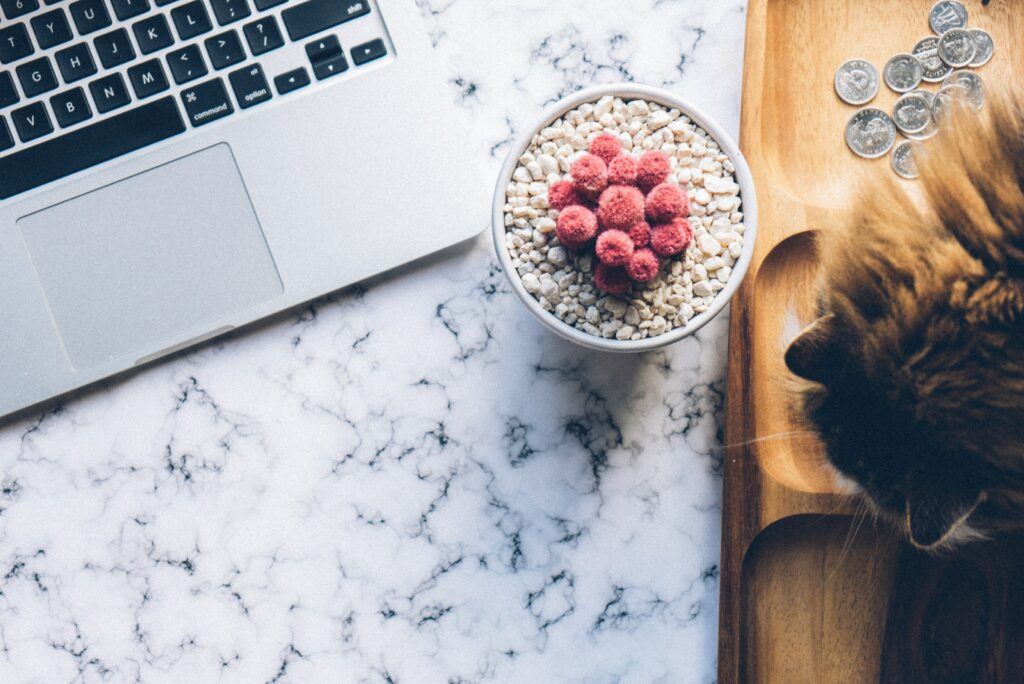
While you should make sure your cat eats a nutritionally balanced diet, it’s okay to give them a treat every now and then. However, it’s important to understand the people foods cats can (and can’t) eat before you mistakenly give them something that could be dangerous.
While there are debates about the type of diet that is appropriate to feed your cat, (some people may feed raw diets, or exclusively “people food” to their cats) unless you’re well-educated on the subject, the easiest and safest way to make sure your cat is getting a balanced diet with all the right vitamins and minerals they need is to feed them a steady diet of food that is specifically formulated for cats.
Human foods that are OK for cats
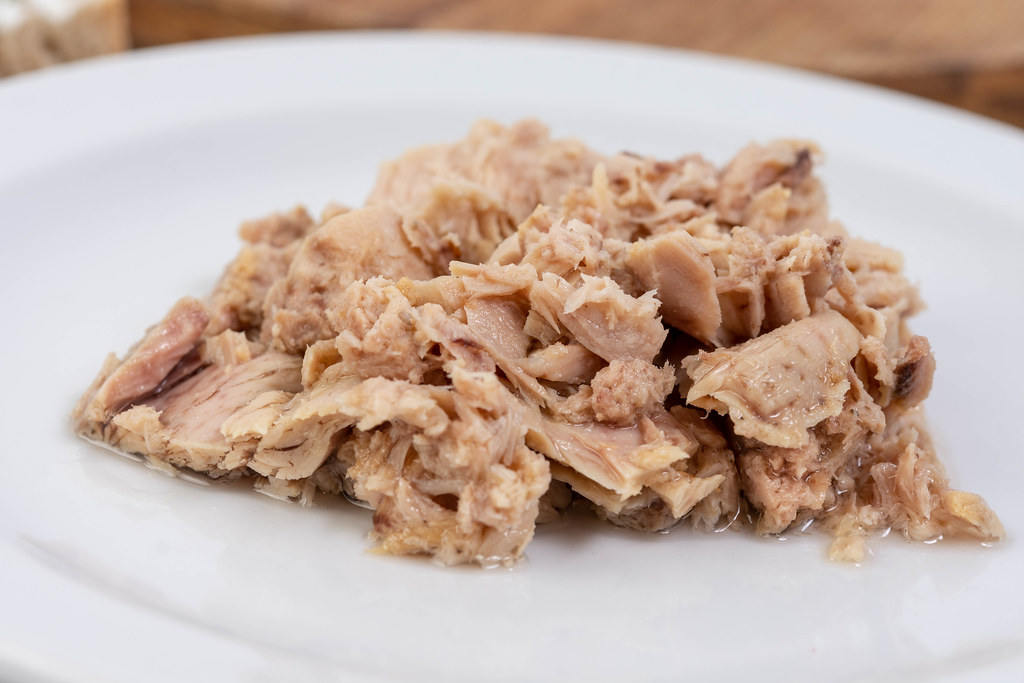
Tuna (and other fish)
While cats typically aren’t super interested in human foods the way dogs can be, if you’ve ever opened a can of tuna with any cats around, you may just pique their interest. Most cats LOVE tuna.
As long as it’s cooked, it’s safe. Opt for the tuna that’s packed in water instead of oil to avoid giving your cat an excess of fat and calories.
You also don’t want to give your cat so much tuna that they won’t eat other food, as tuna does not contain all the essential vitamins and minerals they need for a balanced diet. (There’s also the risk of mercury poisoning!)
The best option would be to give them a canned cat food that’s tuna-based if you want to feed it to them regularly.
Any type of meat
As long as it’s cooked or processed to kill any bacteria, it is safe to give your cat meat. It can even make up part of a nutritious diet, but you don’t want to exclusively feed your cat cuts of meat intended for human consumption because it can cause them to become malnourished.
Avoid bones and trimmings, as they can lead to choking or contain way too much fat that can lead to digestive upset.
Whole Grains
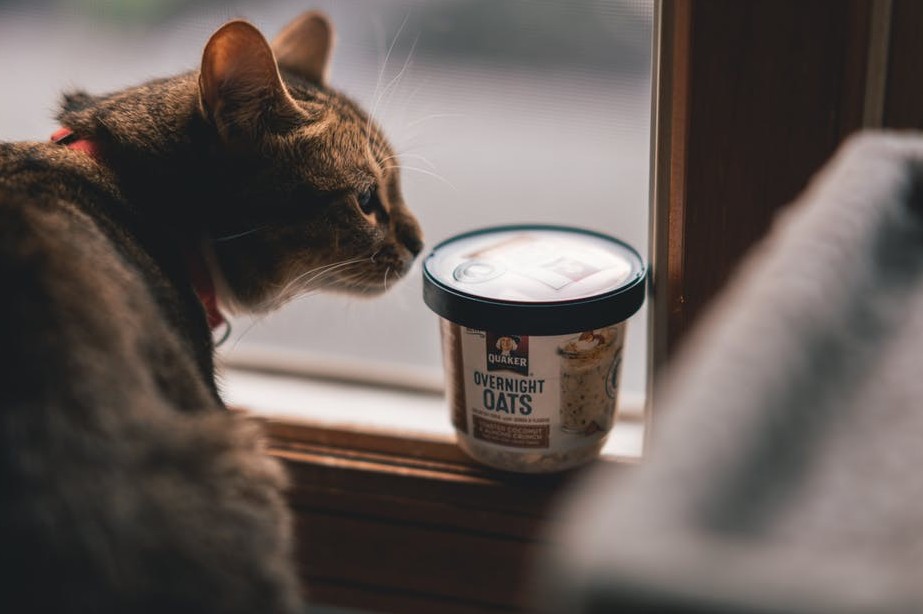
If your cats like it, it can be healthy for them to mow down on some whole grains like oatmeal, cornmeal, couscous, brown rice, and barley. These things have vitamins, iron, fiber, and protein that cats need. Just make sure it’s cooked before you serve it to them.
Avoid refined carbs like white bread and bagels because they are stripped of nutrients and probably contains sugar.
Vegetables
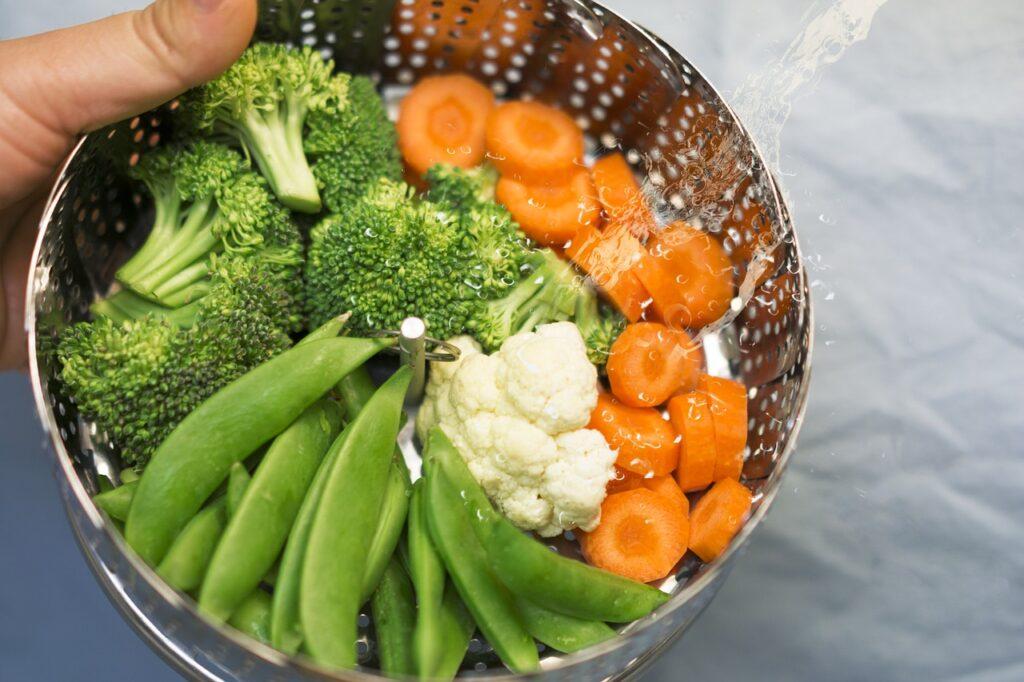
Cats may not really like veggies but you could try to serve them some as an alternative if you find them munching on your house plants.
Things like asparagus, broccoli, green beans, or carrots are good to try. (Just make sure to avoid onions, garlic, and chives)
Fruit (except grapes)
Another option if you find your cat taking to your house plants is to offer them some fruit. While grapes have been known to make cats sick, many other types of fruit can actually be good for them.
Cantaloupe can be exceptionally healthy because it can help keep their eyes and skin healthy due to beta-carotene and antioxidants.
Your cat probably won’t eat fruit, but if they enjoy it, it’s safe to give in moderation as a treat.
Don’t give your cat too much much fruit, veggies, or grains
Despite the fact these things can be healthy, cats are natural carnivores, so they thrive on meat. While it’s safe to give them fruits, veggies, and grains in small amounts, you don’t want it to make up their entire diet.
To avoid malnutrition, you really want to make sure the bulk of your cat’s diet comes from food that’s been specifically formulated for them.
Human foods that are dangerous for cats
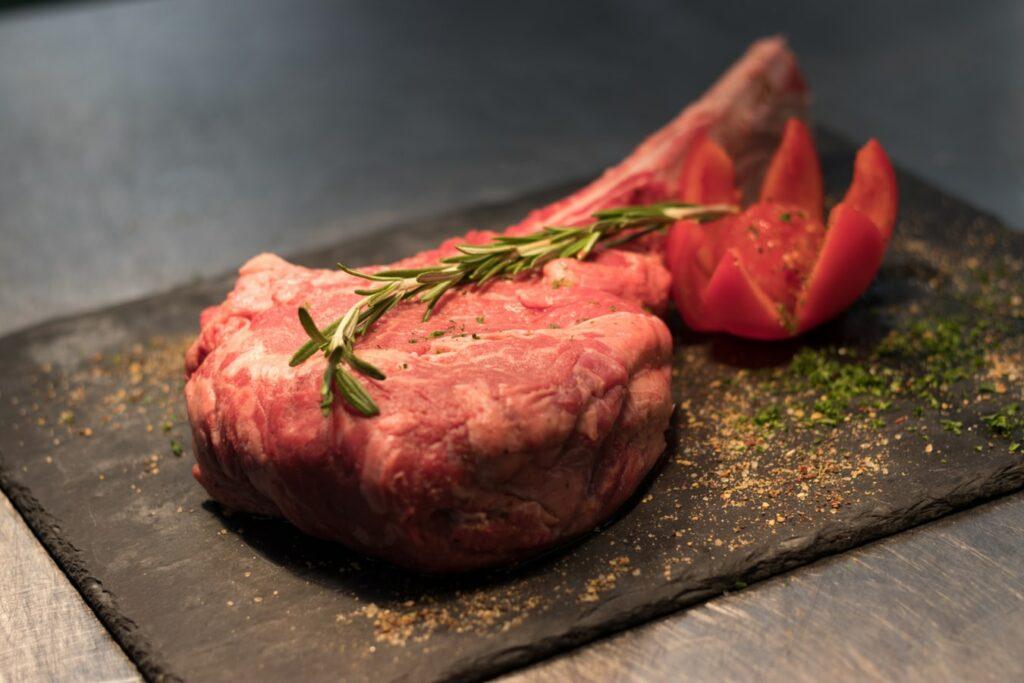
Raw meat, fish, trimmings with fat and bone
Even though cats are natural carnivores in the wild, most advice from veterinary sources will tell you to avoid feeding raw meat to your cat.
It’s also advised to make sure there are no bones in the meat you give them, as they could be a choking hazard. And if you give them trimmings with too much fat, it could make them sick.
Something important to note here is that this topic is highly debated, so just make sure to talk to your vet and do your own research before deciding if raw meat is right for your cat. I decided to include it here under the unsafe foods, just so you’re aware of any potential dangers.
Alcohol and caffeine
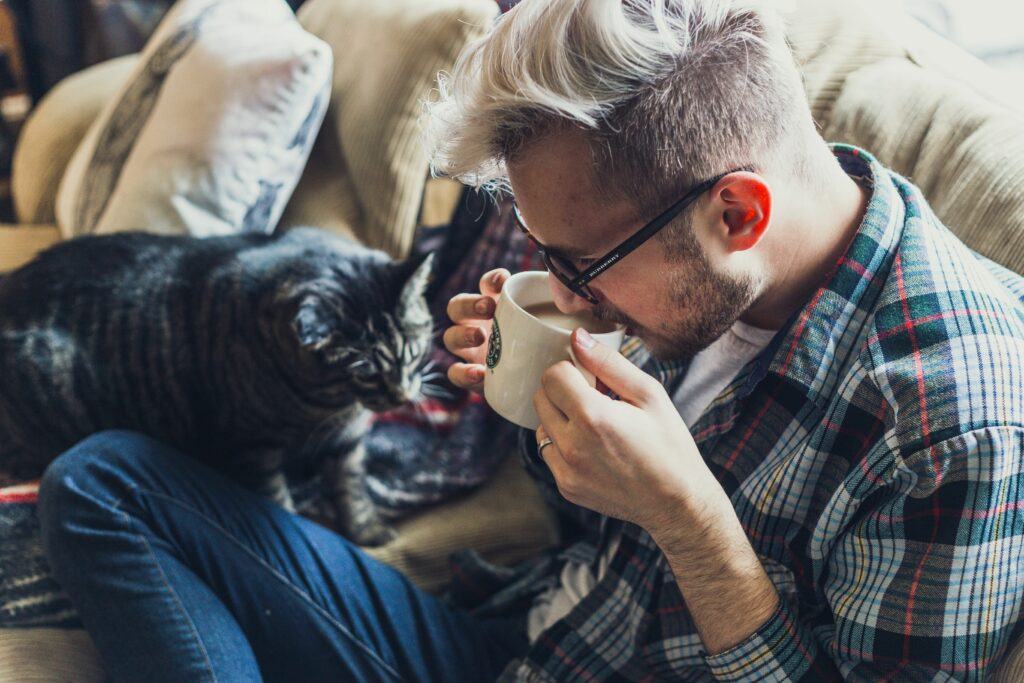
You want to avoid giving these to your cat at all costs. I’m not sure if anyone would intentionally give alcohol to their pet, but don’t leave any leftovers out in a cup where they could get ahold of it or give them any foods that contain alcohol as an ingredient.
To clarify just how dangerous alcohol can be, it only takes 3 teaspoons of whiskey to kill a 5 lb cat (or less, depending on the proof).
Caffeine is also deadly in cats if they ingest a high enough dose. Alcohol and caffeine affect cats the same way as humans, only it takes a MUCH smaller dose since they’re so much smaller. This makes a potentially deadly dose not as much as you may think.
Onions
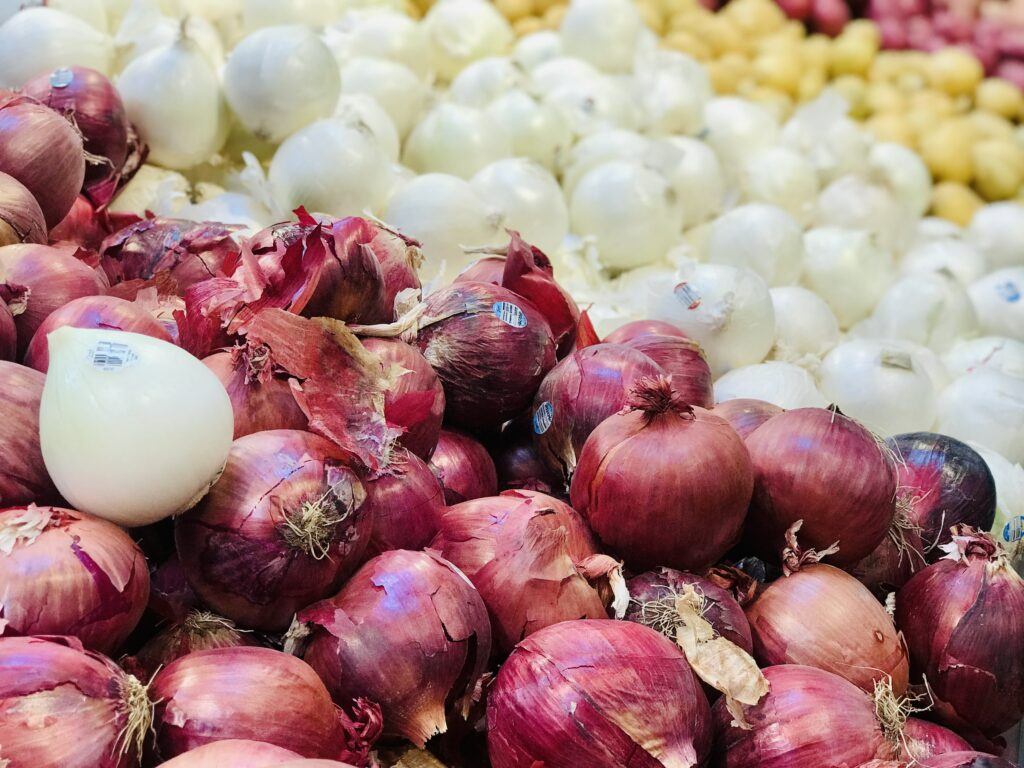
Felines are hypersensitive to the oxidant in onions called n-propyl disulfide, which causes their red blood cells to break down, leading to anemia.
If more than 1 gram per 5 lbs of body weight is ingested, it could become toxic. Definitely don’t give your cat food prepared with any onions or even onion powder.
Read more at: https://wagwalking.com/cat/condition/onion-toxicity
Along with onions, garlic and chives can cause stomach upset in cats.
Grapes
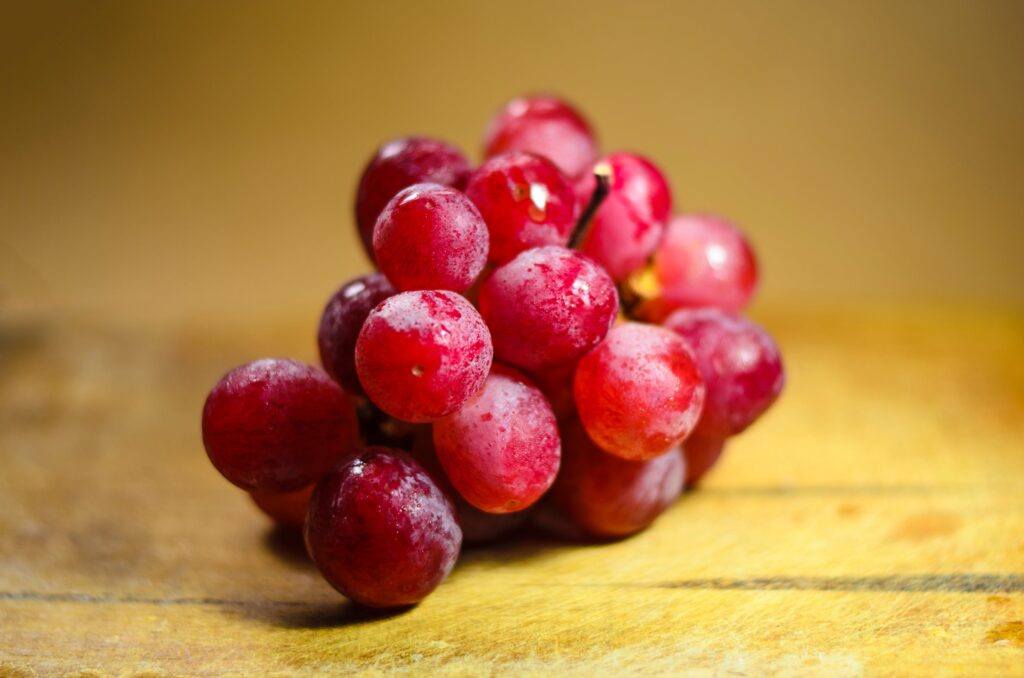
Grapes, or raisins, are not something you want to give your cat as a treat. Even though many types of fruits are healthy for cats, for some reason grapes and raisins have been known to cause kidney failure in cats, and can make them ill.
Sugar and processed foods
Sugar isn’t toxic to cats, but it has the same effect as it does in humans – it can lead to obesity and health-related conditions. Processed foods (potato chips, crackers, cookies, candy, etc) usually are full of sugar, even if it’s something you wouldn’t think of as being sweet.
According to this article in Scientific American, cats literally can’t even taste sweet like humans can because they lack the proper genetic coding. Therefore, there’s really no reason to feed this to them as they won’t even enjoy it as you think.
Chocolate

Chocolate is well-known for being bad for dogs, but it’s also not something you want to give your cat either. The two ingredients in chocolate that are toxic to cats are caffeine and theobromine, which are both stimulants. (Theobromine has actually been proven to be toxic for most animals, not just dogs and cats).
Chocolate meant for baking (like cocoa powder or baking squares) is the most dangerous as the doses of cocoa are much higher than other forms such as milk chocolate candy.
It’s best to keep all forms of chocolate away from your furry friends.
Dairy
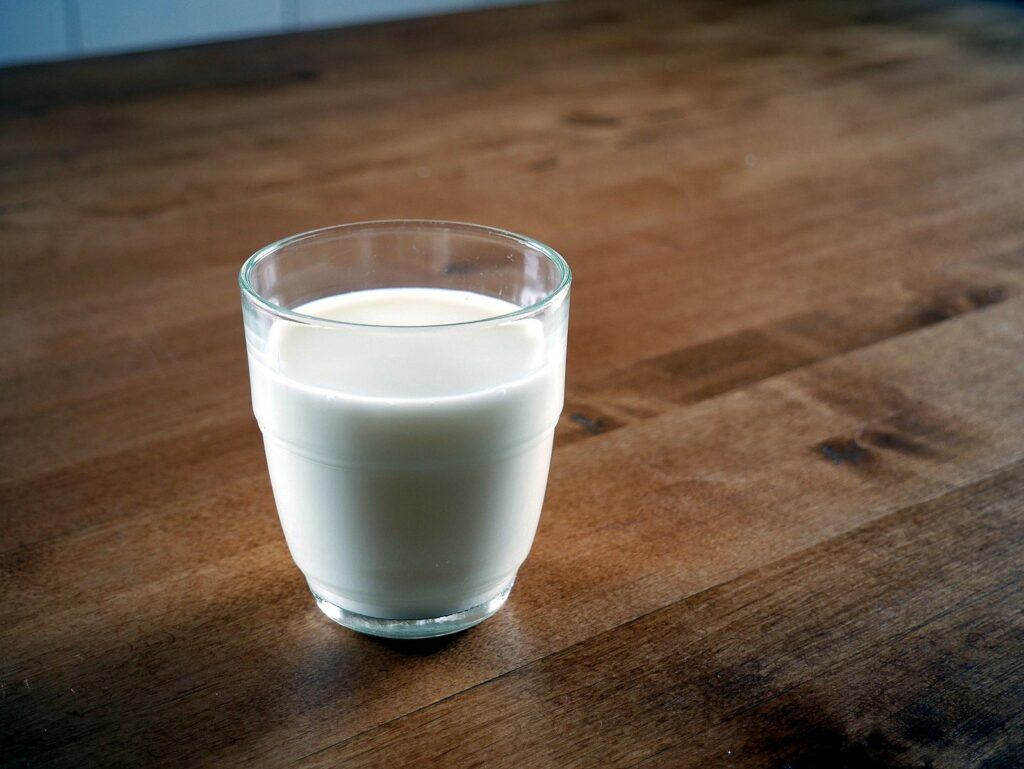
Cats may love to lap up milk (and in my cat Charlie’s case, RANCH dressing) but it isn’t really that good for them. While dairy like milk, cheese, yogurt, ranch, etc is not toxic, most cats are lactose intolerant. Just like in people, this can cause stomach upset and diarrhea.
Since it may not affect every cat adversely, you can try giving your cat a small amount to see how they handle it, and if there are no major issues it may be OK for your cat as a small treat.
Just avoid any ice cream or sweet dairy products as it contains a lot of sugar and fat that they don’t need (and can’t taste anyway!)
[table id=peoplefood /]
Feed them mostly food formulated for cats
It’s perfectly fine to give your feline a human food treat every now and again, just make sure to avoid any of the danger foods. Fish like tuna or meat like chicken and turkey can serve as a good source of additional protein. And if they like it, even many types of fruits and veggies, or whole-grains could add some extra nutrition to your cat’s diet.
At the end of the day, you really want to make sure the bulk of your kitty’s diet is coming from food that’s meant for them. This way you know that it will contain the correct nutrition for them to thrive, grow, and stay healthy.

Leave a Reply